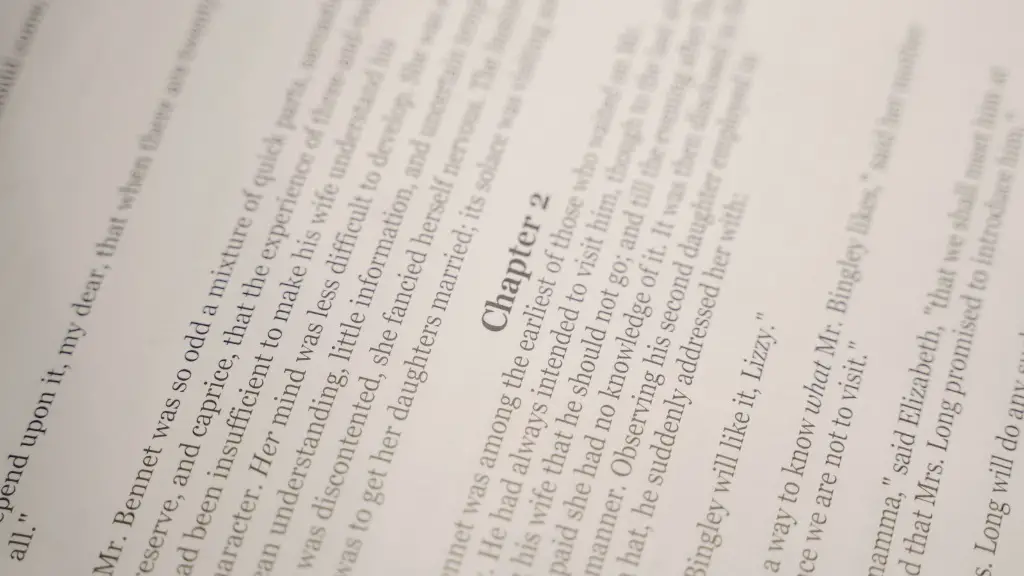Lack of Exposure
Poetry has been available for as long as literature can be traced, yet many teachers consider it not important enough to teach. In the UK alone, most schools only offer limited exposure for it at best. While there are some schools that offer it as part of their extra-curricular activities, not many students receive teaching about it as part of their core curriculum.
The Shakespeare authorship debate amongst secondary school pupils often boosts interest in writing and reading of poetry. However, it is rare for this to translate into sustained activity or interest. Plus, certain abstract and creative concepts in poetry often exceed the relevant experience of many teachers and the expectations of the curriculum.
Lack of Necessity
A major reason why some educators choose not to explore the topic of poetry with their students is the lack of necessity. There is no denying that writing an essay has a very different structure than writing a poem but both can be used as powerful tools to communicate a variety of ideas.
In spite of this, education initiatives and curriculums tend to focus on teaching the ‘basics’, such as mathematics, English, and science. These appear to be more well-defined topics which can be more easily evaluated and assessed. Therefore, many educators choose to focus on these ‘more important’ topics rather than exploring the subjective art form of poetry.
Lack of Appreciation
In some cases, it may be due to a lack of appreciation for the beauty of poetry and its potential for engaging students in a more creative way. Many teachers are embarrassed to share their own writing with their students, which serves to put an emphasis that students are no better than their educators. Without an appreciation for the art form, any introduction to poetry can soon seem mundane and repetitive.
Many students are likely to view poetry as something only suited to specific occasions, like anniversaries or special ceremonies, and thus overlook it as a legitimate means of communication. This lack of understanding for the potential of poetry can lead to limited opportunity for it in the classroom.
Expectation of Performance
Pressure applied by expecting performance can also diminish enthusiasm and interest in poetry. In some cases, in order to please standardized expectations, curriculums can become void of any creative aspect and will instead prioritize two-dimensional tasks. This could be due to exam requirements which necessitate that a certain amount of work must be achieved rather than encouraging creative writing.
What is more, it appears that the only form of poetry that is judged by teachers and pupils is that of writing, leaving little room to imagine or appreciate poetry in its myriad forms. Performance expectations, no matter how ‘creative’, can stifle the spirit of discovery that is such an important feature of poetry.
Value for Life
Poetry does, however, offer tremendous value for life. Through including poems in the curriculum, students can develop an appreciation for language, become more confident in their writing, and gain a better understanding of their own and others’ emotions. Despite the lack of exposure to poetry and the lack of necessity of including it in the curriculum, there is great potential for intrinsic benefit.
Including poetry in the curriculum may also allow teachers to create an engaging learning experience. This can be done through providing the students with the freedom to express their voices in a meaningful way and discover new realms of thought. The range of poetic forms and techniques gives teachers a wealth of options to draw upon and discover ideas together with their students.
Cultural Impact
In the modern age, poetry is often identified as foreign and often superfluous, regarded almost exclusively as the preserve of those with a high cultural background or those with a highly educated appreciation of the aesthetics. By teaching poetry in the classroom, children can gain a valuable appreciation of their cultural heritage, broaden their understanding of foreign texts and learn to reflect on their environment through the use of language.
Moreover, this exposure can reduce feelings of alienation and emphasise the important role of their own cultural heritage in society. Poetry can bring greater understanding to many of the diverse personalities and perspectives in a classroom and promote deeper learning.
Digital Potential
Due to the rise of the digital domain and its use of content from the past, there are now many teaching resources available online for teachers to use which could be used to help students gain an informed insight into the power of poetry. Many online teaching materials use visual, audio, and textual elements to support the message presented in poetry, thus providing a more engaging learning environment.
In addition to this, many mobile applications and websites offer the opportunity for students to get involved in poetry writing contests and submit their work for feedback. This allows teachers to access materials generated by young poets and learn to appreciate the creativity of their students.
Conclusion
It is clear that poetry has many positive qualities that can be beneficial to young minds and promote a creative and informed learning experience. Although it is often overlooked due to the lack of exposure or lack of necessity in education, poetry should still be embraced and actively included in the school curriculum. Through the use of digital resources, the value of poetry can be further recognised and its impact realised.



